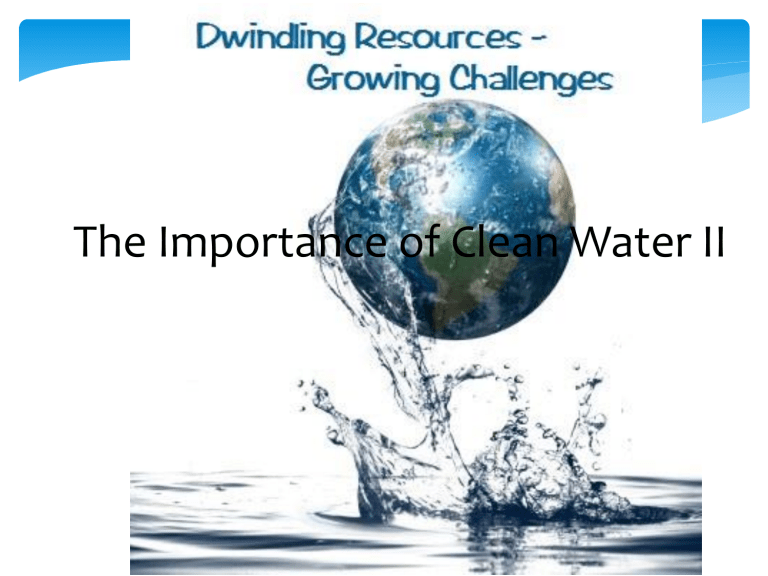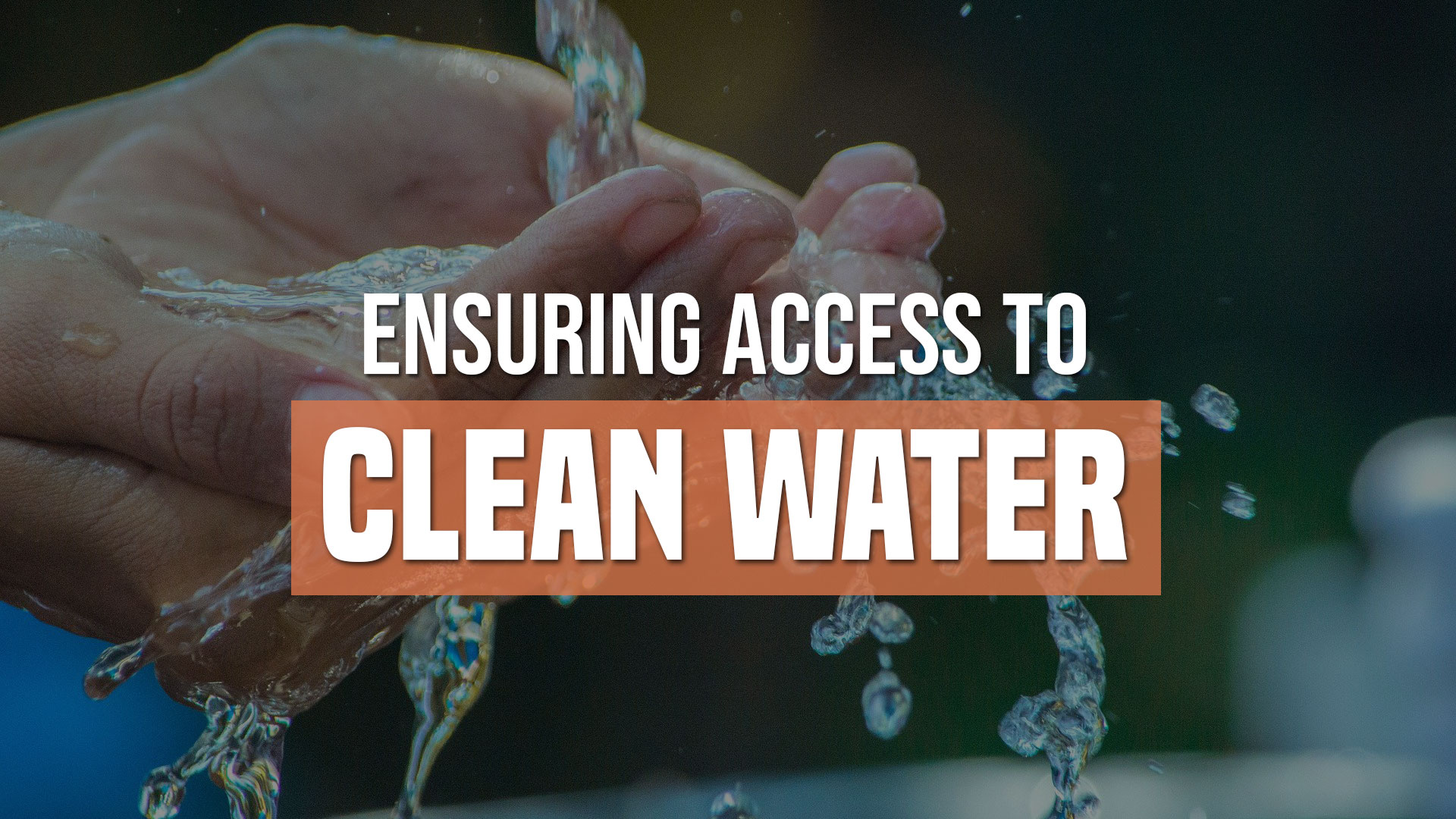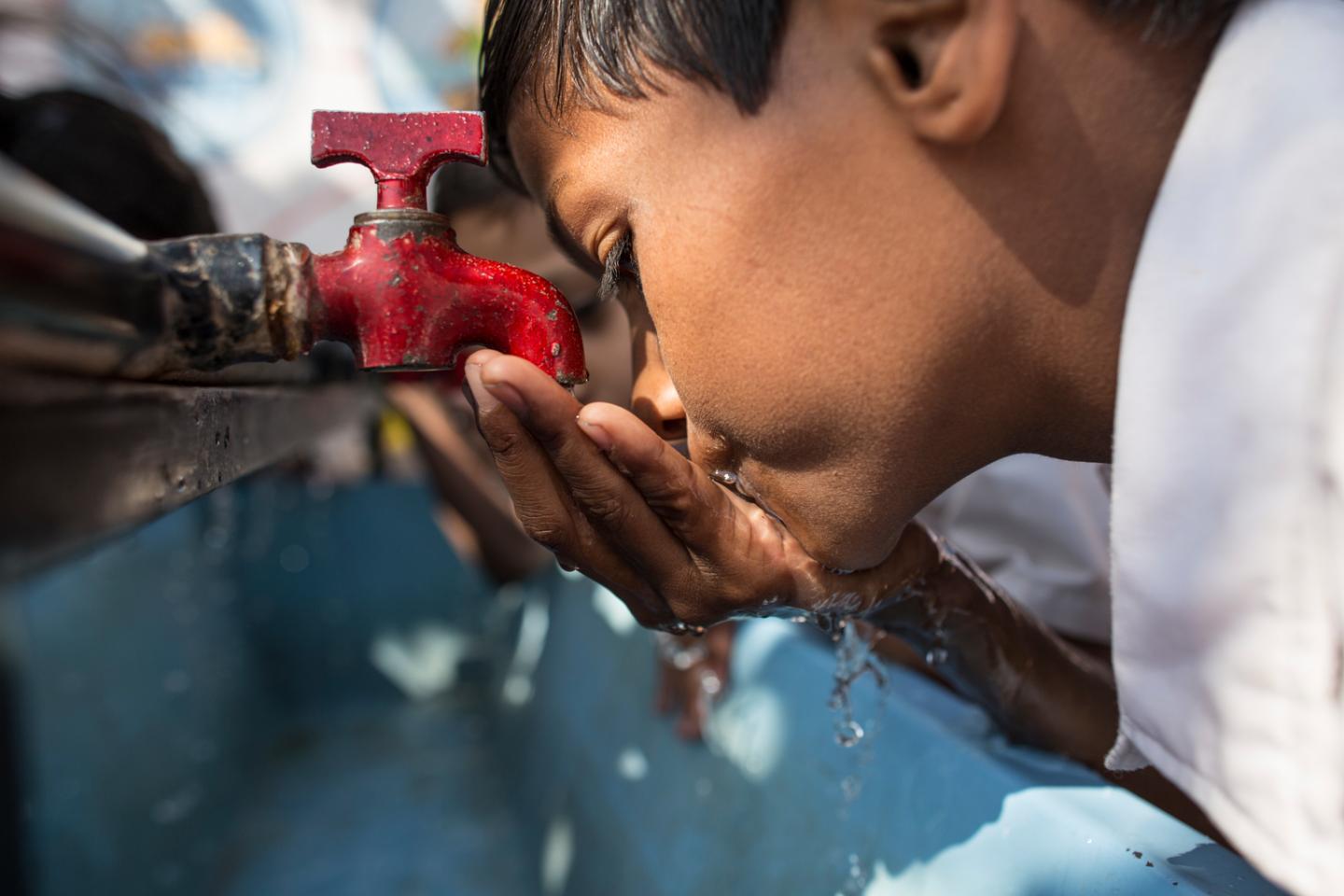Clean Water And Sanitation Presentation
| Introduction to Clean Water and Sanitation | ||
|---|---|---|
| Clean water and sanitation are essential for human health and well-being. Access to clean water and proper sanitation facilities is a basic human right. Lack of clean water and sanitation leads to the spread of diseases and hampers socio-economic development. | ||
| 1 | ||
| Importance of Clean Water | ||
|---|---|---|
| Clean water is crucial for drinking, cooking, and personal hygiene. Lack of clean water can lead to waterborne diseases such as diarrhea, cholera, and typhoid. Access to clean water reduces child mortality rates and improves overall health. | ||
| 2 | ||
| Challenges in Ensuring Clean Water | ||
|---|---|---|
| Limited access to clean water sources in many regions of the world. Contamination of water sources due to industrial waste, agricultural runoff, and improper sanitation practices. Climate change and droughts exacerbate the scarcity of clean water. | ||
| 3 | ||
| Importance of Sanitation | ||
|---|---|---|
| Proper sanitation facilities prevent the contamination of water sources and the spread of diseases. Access to sanitation facilities ensures dignity, privacy, and safety, especially for women and girls. Improved sanitation leads to better overall community health and reduces healthcare costs. | ||
| 4 | ||
| Challenges in Ensuring Sanitation | ||
|---|---|---|
| Lack of proper sanitation facilities, particularly in rural areas and informal settlements. Open defecation contaminates water sources and increases the risk of diseases. Cultural beliefs and practices may hinder the adoption of improved sanitation practices. | ||
| 5 | ||
| Sustainable Development Goal 6 | ||
|---|---|---|
| Goal 6 of the United Nations' Sustainable Development Goals aims to ensure clean water and sanitation for all by 2030. This goal emphasizes the need for universal access to safe and affordable drinking water, adequate sanitation, and hygiene facilities. Achieving Goal 6 requires investment in infrastructure, capacity-building, and behavior change. | ||
| 6 | ||
| Strategies for Ensuring Clean Water and Sanitation | ||
|---|---|---|
| Implementing water treatment processes to ensure the quality of drinking water. Promoting hygiene education and behavior change to improve sanitation practices. Investing in infrastructure development, such as piped water networks and sanitation facilities. | ||
| 7 | ||
| Success Stories in Clean Water and Sanitation | ||
|---|---|---|
| The Water.org initiative has provided access to safe water and sanitation for millions of people in developing countries. The Swachh Bharat (Clean India) Mission in India aims to eliminate open defecation and improve sanitation facilities. The Water for People organization works towards sustainable water and sanitation solutions in various countries. | ||
| 8 | ||
| Call to Action | ||
|---|---|---|
| Governments, NGOs, and individuals must prioritize and invest in clean water and sanitation initiatives. Collaboration between different stakeholders is essential to address the challenges and achieve universal access. Raising awareness and advocating for the importance of clean water and sanitation can drive change. | ||
| 9 | ||
| Conclusion | ||
|---|---|---|
| Access to clean water and sanitation is a fundamental human right for a healthy and prosperous society. Ensuring clean water and sanitation requires collective efforts and sustained investment. By prioritizing clean water and sanitation, we can improve lives, reduce poverty, and create a more sustainable future. | ||
| 10 | ||








